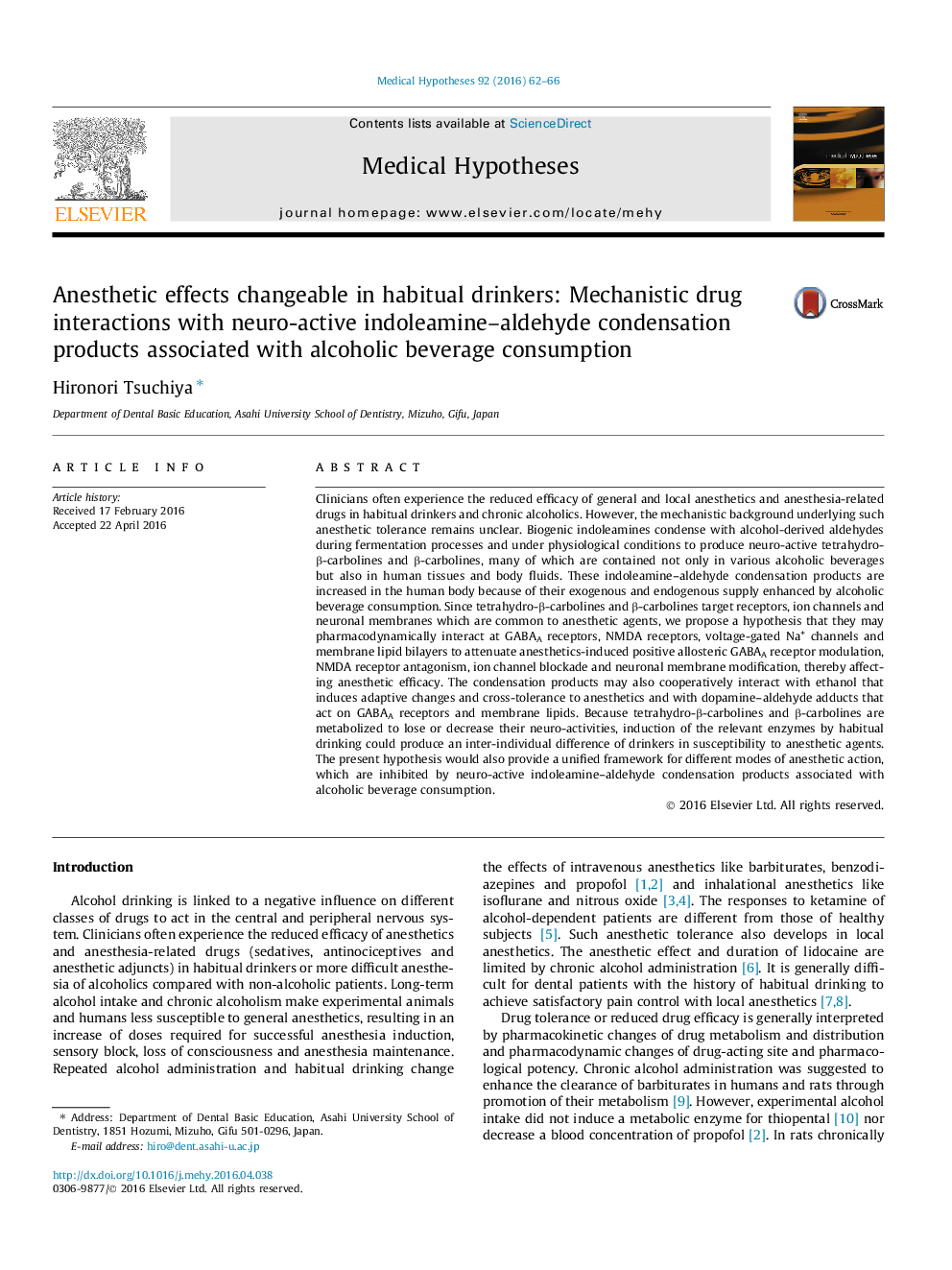| کد مقاله | کد نشریه | سال انتشار | مقاله انگلیسی | نسخه تمام متن |
|---|---|---|---|---|
| 2488920 | 1556553 | 2016 | 5 صفحه PDF | دانلود رایگان |
Clinicians often experience the reduced efficacy of general and local anesthetics and anesthesia-related drugs in habitual drinkers and chronic alcoholics. However, the mechanistic background underlying such anesthetic tolerance remains unclear. Biogenic indoleamines condense with alcohol-derived aldehydes during fermentation processes and under physiological conditions to produce neuro-active tetrahydro-β-carbolines and β-carbolines, many of which are contained not only in various alcoholic beverages but also in human tissues and body fluids. These indoleamine–aldehyde condensation products are increased in the human body because of their exogenous and endogenous supply enhanced by alcoholic beverage consumption. Since tetrahydro-β-carbolines and β-carbolines target receptors, ion channels and neuronal membranes which are common to anesthetic agents, we propose a hypothesis that they may pharmacodynamically interact at GABAA receptors, NMDA receptors, voltage-gated Na+ channels and membrane lipid bilayers to attenuate anesthetics-induced positive allosteric GABAA receptor modulation, NMDA receptor antagonism, ion channel blockade and neuronal membrane modification, thereby affecting anesthetic efficacy. The condensation products may also cooperatively interact with ethanol that induces adaptive changes and cross-tolerance to anesthetics and with dopamine–aldehyde adducts that act on GABAA receptors and membrane lipids. Because tetrahydro-β-carbolines and β-carbolines are metabolized to lose or decrease their neuro-activities, induction of the relevant enzymes by habitual drinking could produce an inter-individual difference of drinkers in susceptibility to anesthetic agents. The present hypothesis would also provide a unified framework for different modes of anesthetic action, which are inhibited by neuro-active indoleamine–aldehyde condensation products associated with alcoholic beverage consumption.
Journal: Medical Hypotheses - Volume 92, July 2016, Pages 62–66
